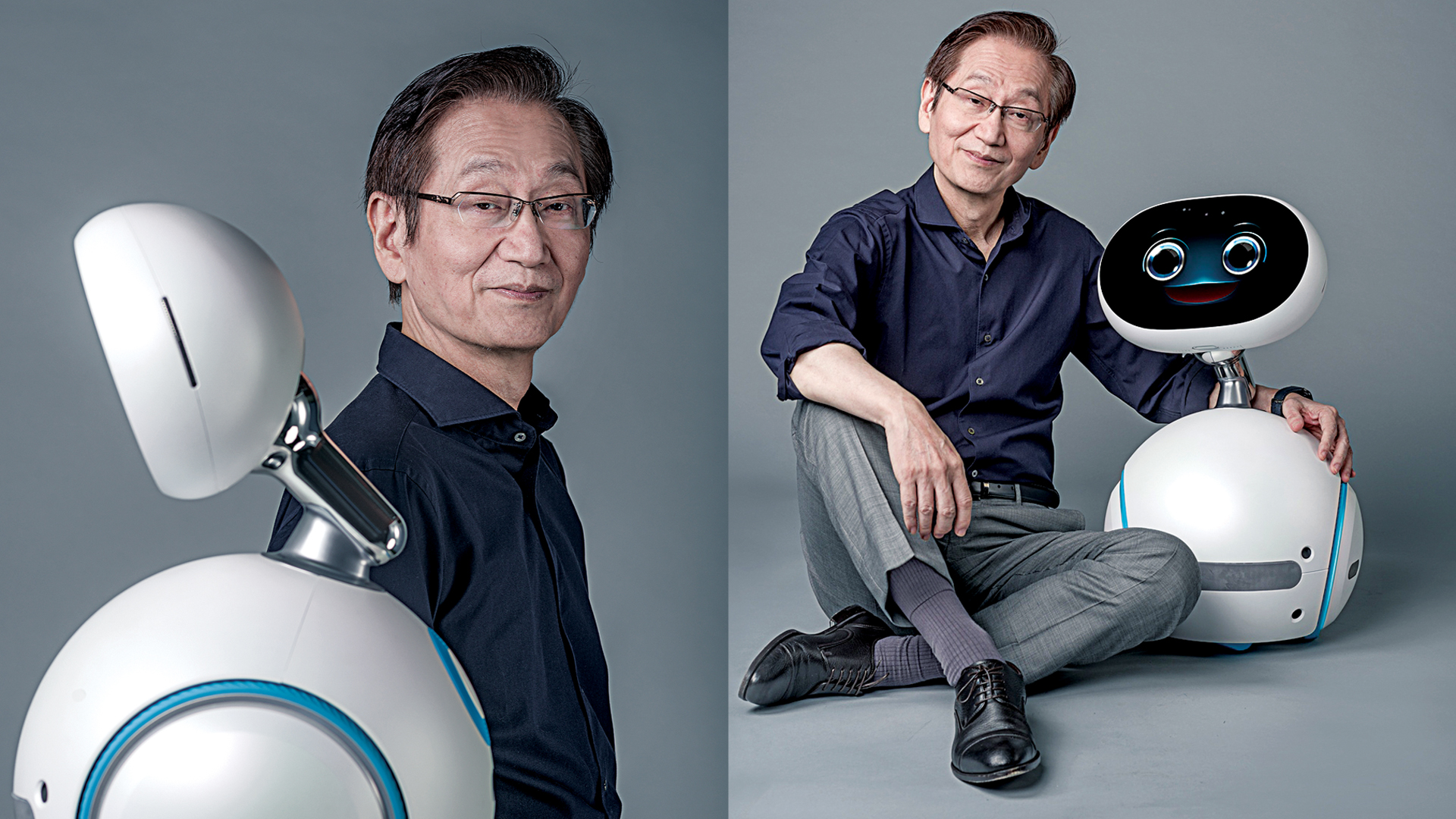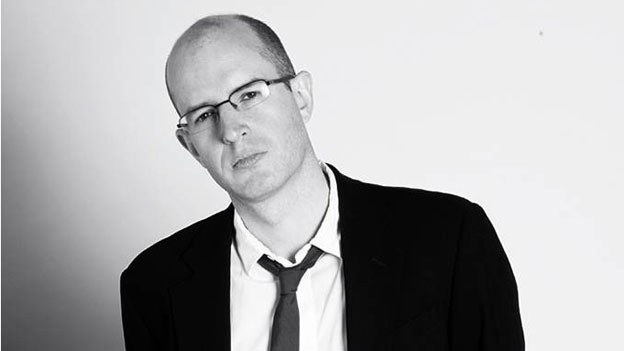Jonney Shih of Asus wants to put a robot in your home
The Lifetime Achievement Award winner at the T3 Awards isn't just about laptops and phones, as he told us in a typically wide-ranging and enthusiastic chat


Asus Chairman and Chief Branding Officer Jonney Shih is not like other tech executives. He's like a more humble Steve Ballmer; a true enthusiast, a charismatic on-stage presenter of his company's visions, and very much still an engineer at heart.
His high-intensity press conferences are a world away from the stilted banter of certain tech launch events we could mention.
Since Shih joined the company in 1994, he and his team have built Asus from a niche motherboard manufacturer into one of the biggest names in the Windows laptop market, a big player in gaming, ho ho, even has also made a push into smartphones, notably with the recent, AR-assisted ZenFone 4.
Now, Shih is looking further forward, into the realm of AI and robot home assistants, with Zenbo.
Jonney Shih: "Thank you for giving me this prestigious award. I’m very much honoured."
T3: How does it feel to win it? You must have won loads of awards…
JS: Haha, yes. A lot haha. Thank you.
T3: But this one is the most important, yeah?
Get all the latest news, reviews, deals and buying guides on gorgeous tech, home and active products from the T3 experts
JS: I’m very much honoured.
T3: You seem to enjoy yourself when you give press conferences. You’re quite free…
JS: Yeah, maybe because of my passion about technology, about new products. Even though I have been the chairman of Asus for almost three decades, I’m still an engineer deep down. Engineers are always straight-talking, right? I’m always excited about the breakthroughs. So I think that’s why.
T3: What are your rules for success in the tech biz?
JS: Think through, and execute thoroughly! I’m an engineer, and this philosophy comes from the engineering spirit.
You have to focus on innovation and value in your technology. You need to master software in order to be a good tech hardware brand, so forget about pure hardware. Start from the consumer’s desire first, and only then do you consider the business viability, and eventually the technical feasibility.
And I believe you also need to deliver the results. So that’s why I have to 'execute thoroughly,' and I try to apply this philosophy through management to design. A lot of people will talk about the principle to be persistent, to be genuine, to be authentic. But if you think through, the rest follows from that.
Asus is defined by our brand promise, In search of incredible’. You may think it’s a marketing tagline, but to me I think each one of the words reflects who I am and who Asus is. We are passionate about technology and driven by innovation. We are always in search of incredible ideas and experiences, and we aspire to deliver the incredible in everything we do.
T3: What’s your favourite Asus product?
JS: Zenbo, our first home robot. We have a philosophy we call the evolving reality. It’s my ambition to become the company that enables robotic computing for every household. Some may think it’s far-fetched, but I beg to differ.
Robots will revolutionise our definition and perception of computing. We all love our computers – imagine just how great it’ll be when it proactively comes to you and asks you your wishes. In the past two years, I’ve tried to drive this project.
T3: Is it a problem that everyone sees home robots as a fictional, sci-fi thing?
JS: That’s actually why I have this ambition. Humans have talked about robots for such a long time since, I think, Descartes. And even today, the most intelligent ones, maybe like the Asimo from Honda, are just for demonstration. We have to be very realistic in order to really penetrate every household. So we think the best design thinking is to make it cute, drive the best user experience, make it practical, and we’ve tried to price it from $599 – it’s a tough target. We have to cherish every cent we spend. That’s why I think it’s a significant product.
T3: People talk to phones, speakers, things that don’t move. Is the robot the next evolution of that?
JS: Our goal is to further expand upon the functionalities of today’s machine-learning-based AI. I think Zenbo can be two steps ahead of these kinds of inanimate objects, with a mobile physical body and also a personality. It’s designed to be a sweet little companion, so his facial expressions and choice of words reflect this persona. My 86-year-old mother is very attached to Zenbo, after spending a few weeks with him. She even missed him when she went on vacation.
T3: Many people – Elon Musk and Gary Numan, for instance – see AI as potentially the greatest threat potentially facing humanity. Do you have similar fears?
JS: Actually, no. Today’s AI technology is still built upon machine-learning, 'narrow' AI. Only general AI can potentially become a threat to humans, but we are still a long way from that. According to the Cyc project, it will take around 100 years to establish an AI with common sense. The greatest AI achievements so far are still lower than a cockroach, and it’s very difficult to achieve even that kind of level. So I’m not that worried, frankly speaking.
If someone tries to develop something to hurt a human being, it’s like a bomb. We should take the same approach as we would to prevent that happening, to stop those scientists, those developers.
T3: Do you have any other predictions for how the tech world might look in another 10 years’ time?
JS: In 10 years I think it will be very different. Everything will be online, and that’s very important, a new era. Information will be like today’s electricity, powering everything: our learning, our work, our play, our buying.
I think every industry will be very different. The whole-world economy ecosystem will become a kind of consumer-centric connected value network, a genuine digital economy. Before, industry guessed the demand, so you’ve always got that long tail effect, inventory problems. But in 10 years, everything starts from the consumer.
T3: Is there any Asus product you feel was underrated?
JS: The PadFone! It was a product that was ahead of its time. Even today the PadFone is a perfect phone. We care a lot about our eyes, or our kids’ eyes, right? Phone screens are too small. I think that’s a perfect solution, a smartphone big enough to cover the tablet function. It came out around 2011, but I think in today’s market it would be more suitable.

Duncan is the former lifestyle editor of T3 and has been writing about tech for almost 15 years. He has covered everything from smartphones to headphones, TV to AC and air fryers to the movies of James Bond and obscure anime. His current brief is everything to do with the home and kitchen, which is good because he is an excellent cook, if he says so himself. He also covers cycling and ebikes – like over-using italics, this is another passion of his. In his long and varied lifestyle-tech career he is one of the few people to have been a fitness editor despite being unfit and a cars editor for not one but two websites, despite being unable to drive. He also has about 400 vacuum cleaners, and is possibly the UK's leading expert on cordless vacuum cleaners, despite being decidedly messy. A cricket fan for over 30 years, he also recently become T3's cricket editor, writing about how to stream obscure T20 tournaments, and turning out some typically no-nonsense opinions on the world's top teams and players.
Before T3, Duncan was a music and film reviewer, worked for a magazine about gambling that employed a surprisingly large number of convicted criminals, and then a magazine called Bizarre that was essentially like a cross between Reddit and DeviantArt, before the invention of the internet. There was also a lengthy period where he essentially wrote all of T3 magazine every month for about 3 years.
A broadcaster, raconteur and public speaker, Duncan used to be on telly loads, but an unfortunate incident put a stop to that, so he now largely contents himself with telling people, "I used to be on the TV, you know."
